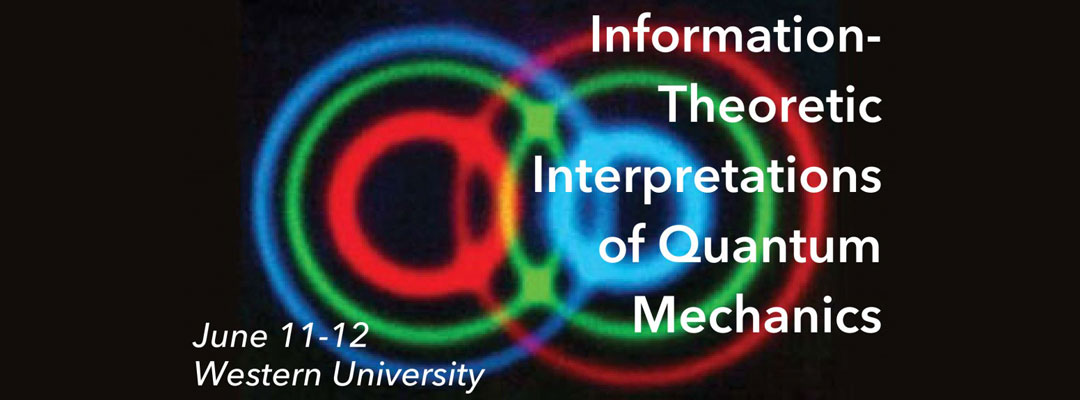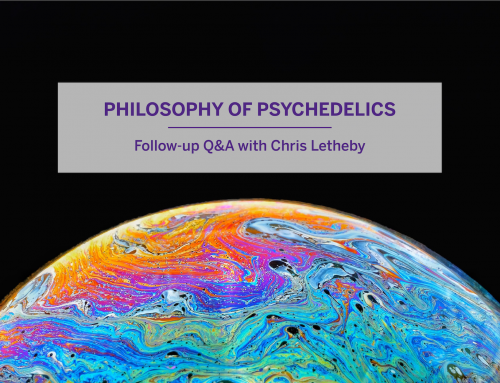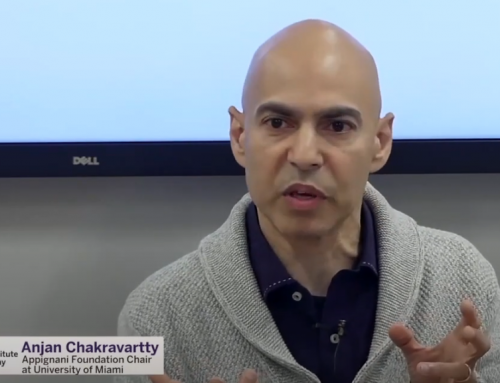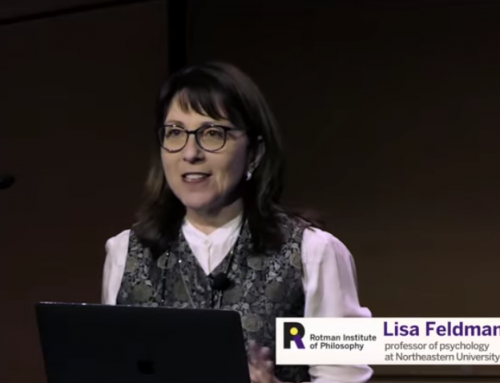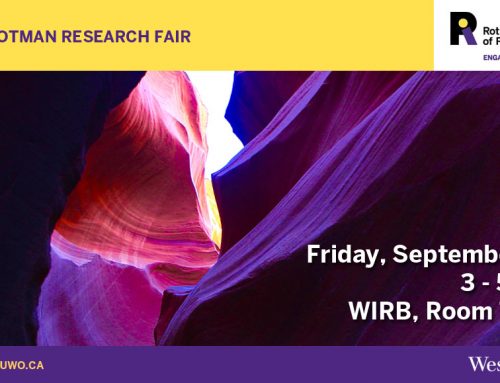Information-Theoretic Interpretations of Quantum Mechanics, the 20th annual UWO philosophy of physics conference, was held on June 11-12, 2016 at Western University. The workshop was inspired by Jeffrey Bub’s recently published book Bananaworld: Quantum Mechanics for Primates (Oxford University Press). The workshop brought together diverse views on issues raised by and related to Professor Bub’s work on developing an information-theoretic interpretation of quantum theory. The program and further details on the workshop can be accessed on the Information-Theoretic Interpretations of Quantum Mechanics website.
Videos from the second day of the conference have been published on the Rotman Institute YouTube Channel, completing the playlist for the entire conference. Abstracts for the newly added videos are listed below.
[embedyt] http://www.youtube.com/embed?listType=playlist&list=PLkMaaEPd7InL0PfUKQFq8KUqOnrUAZBqq[/embedyt]
Marissa Giustina (University of Vienna, Physics): Significant loophole-free test of Bell’s theorem with entangled photons
Local realism is the worldview in which physical properties of objects exist independently of measurement and where physical influences cannot travel faster than the speed of light. Bell’s theorem states that this worldview is incompatible with the predictions of quantum mechanics, as is expressed in Bell’s inequalities. Previous experiments convincingly supported the quantum predictions. Yet, every experiment requires assumptions that provide loopholes for a local realist explanation. In this paper, I will discuss the recent results from my laboratory, in which we designed an experiment that closes the most significant of these loopholes simultaneously. Using a well-optimized source of entangled photons, rapid setting generation, and highly efficient superconducting detectors, we observe a violation of a Bell inequality with high statistical significance. The purely statistical probability of our results to occur under local realism is exceedingly unlikely, corresponding to an 11.5 standard deviation effect.
Gilles Brassard (Université de Montréal, Computer Science): Information is the key!
Most physicists take it for granted that the experimental violation of Bell’s inequality provides evidence that it is not possible to completely describe the state of a physical system in terms of purely local information when this system is entangled with some other system. We disagree. Provided we redefine appropriately what is the information-theoretic state of a quantum system, it becomes possible to recover the whole from the description of its parts. This is in sharp contrast with the standard formalism of quantum mechanics in which the density matrix provides all there is to say about the state of a system. According to our formalism, there is no need to invoke supernatural nonlocality in order to explain everything standard quantum mechanics tells us that we can observe. We show, however, that this is inconsistent with the usual belief held among Everettians that the universal wavefunction can be taken as the complete representation of reality. Inspired by Plato and Kant, we introduce and contrast the notions of noumenal and phenomenal states of physical systems: the former corresponds to the complete but unknowable state of the system and the latter to what can be perceived about it with the help of arbitrary technology. We exhibit an explicit epimorphism from the former to the latter, which explains the relationship between all that there is and all that can be apprehended.
Joint work with Paul Raymond-Robichaud.
Lucien Hardy (Perimeter Institute for Theoretical Physics): Operational road to Quantum Gravity
Quantum theory is a probabilistic theory with fixed causal structure. General relativity is a deterministic theory but where the causal structure is dynamic. It is reasonable to expect that quantum gravity will be a probabilistic theory with dynamic causal structure. In this talk, I will outline an operational approach to Quantum Gravity within an appropriate general probability theory (GPT) framework. This consists, first, in finding an operational and probabilistic formulation of (classical) General Relativity. Usually GR is regarded as a theory in which a solution is simply stated for all space and time (the Block Universe view). Here, instead, we find a way to treat agents as making choices. Once we have this we can think about different ways to turn this classical theory into a Quantum Theory of GR.
Laura Felline (Roma Tre University, Philosophy): It’s a matter of principle. Scientific explanation in information-theoretic reconstructions of quantum theory
The overall aim of this paper is to explore ways in which Axiomatic Reconstructions of Quantum Theory in terms of Information-Theoretic principles (ARQITs) could contribute to explaining and understanding quantum phenomena, as well as studying their explanatory limitations. This is also done by offering an account of the kind of explanation that axiomatic reconstructions of quantum theory may provide, and re-evaluating the epistemic status of the ARQIT program in light of this explanation. On the one hand, I argue that ARQITs can aspire at providing genuine explanations of some quantum phenomena. On the other hand, I argue that such explanations cannot rule out a mechanical quantum theory, nor make it explanatorily superfluous.
Armond Duwell (University of Montana, Philosophy): Understanding quantum theory
In recent years there has been a shift, at least in part, in the way foundational studies of quantum theory have been undertaken. Rather than asking what the world is like if quantum theory is true, many researchers have asked the question, in the space of possible theories, why quantum theory? This is a very different approach to understanding the quantum world. In this talk I will utilize the notion of modal understanding that has been developed by Le Bihan (forthcoming) to characterize the epistemic value of this new approach, and compare it to more traditional foundational work on quantum theory.
Subscribe to the Rotman Institute YouTube Channel.

